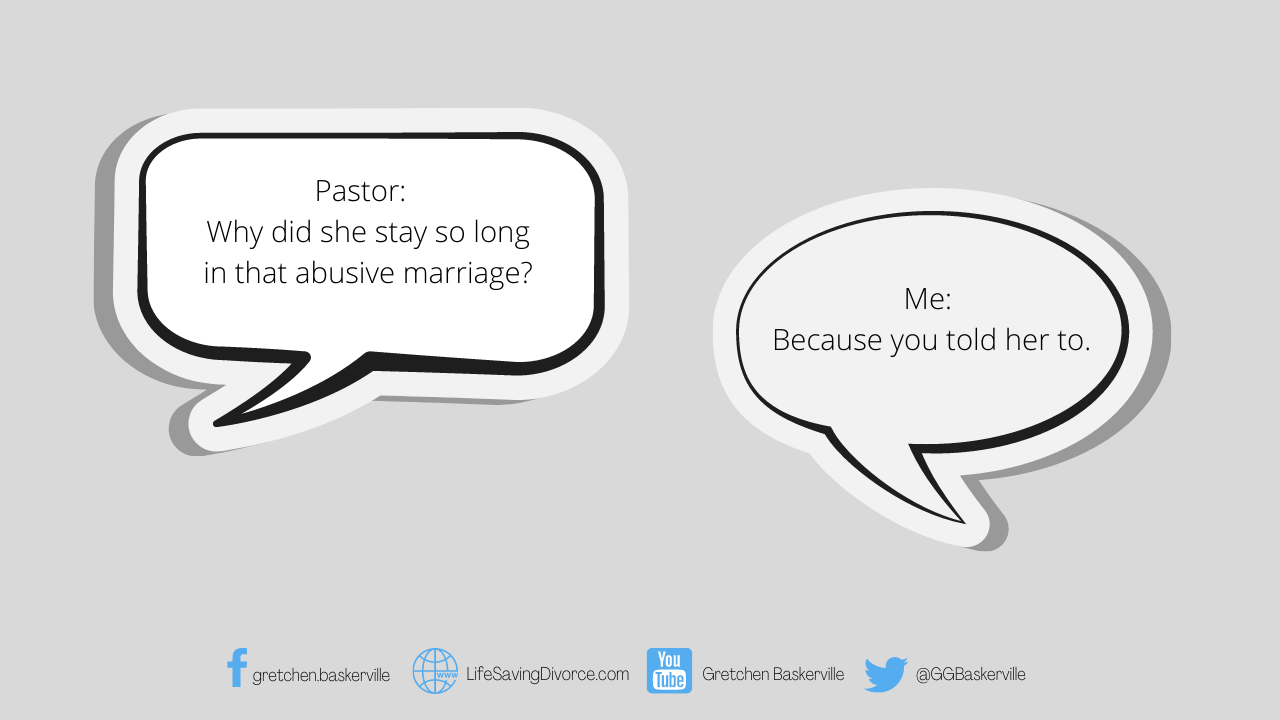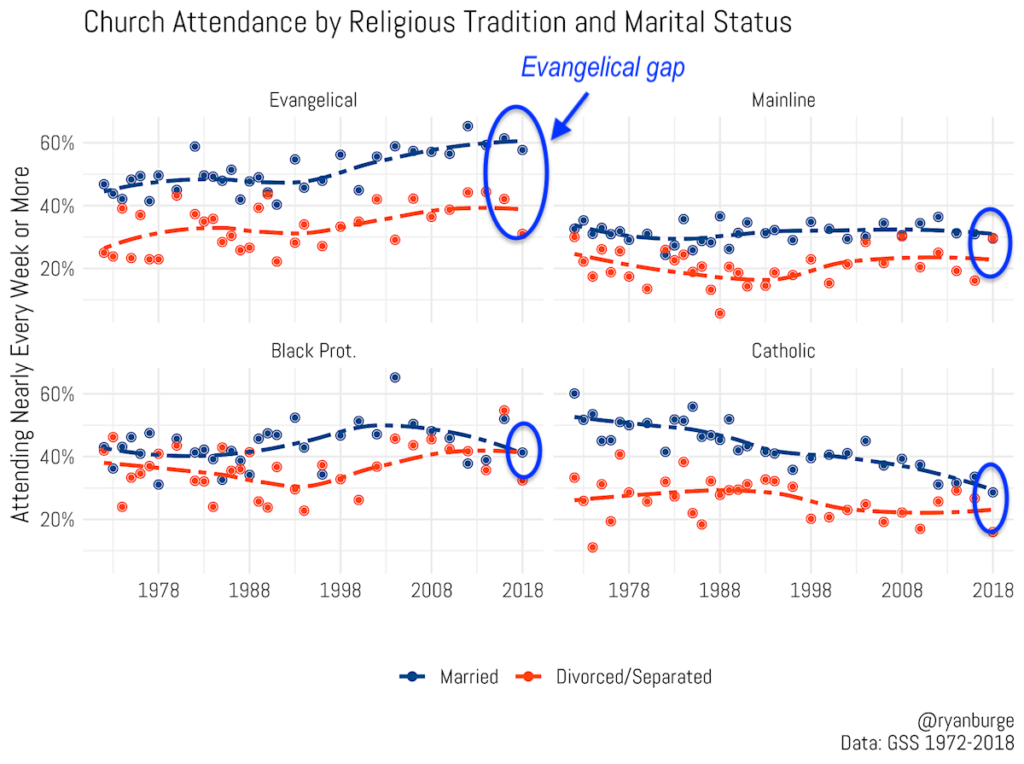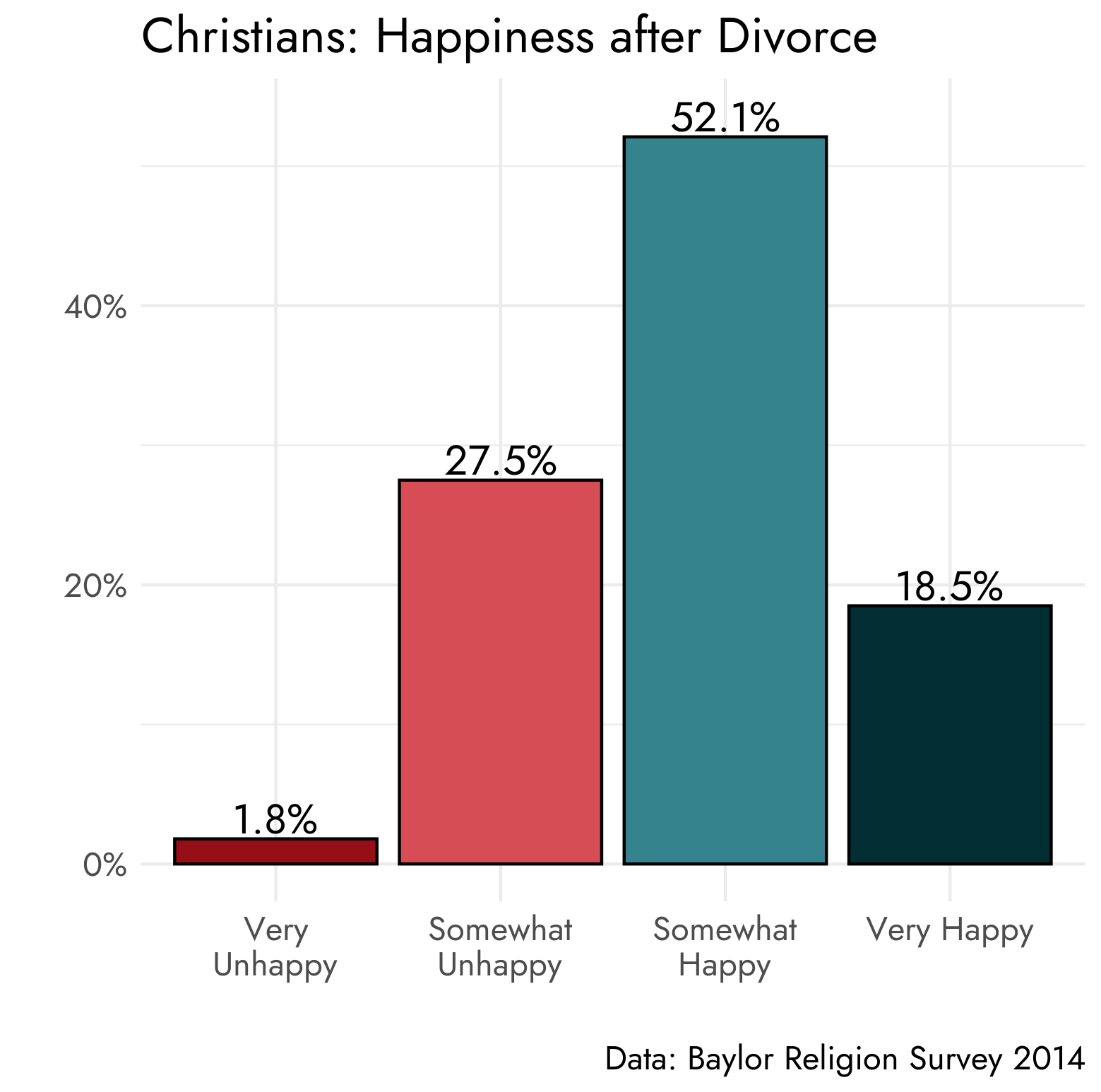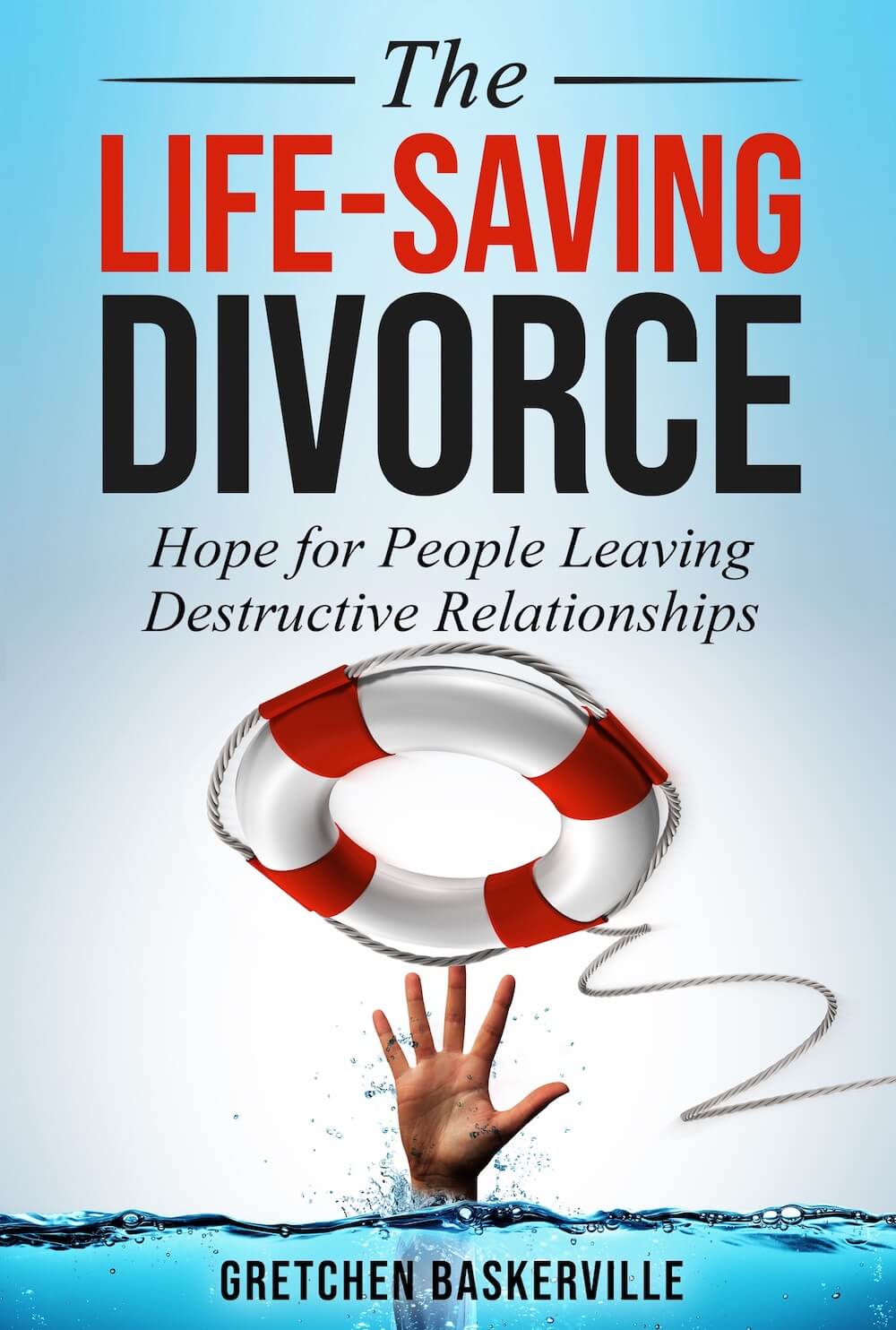Abused and Betrayed Christian Divorcees are Leaving the Church

Today, I’m going after the Southern Baptists who in 2010 made the lives of abused wives and abused husbands just a little bit more miserable. So strap in and hang on tight. And see if you agree.
A few weeks ago, I did a presentation about a serious problem: Evangelical churches shoot their own wounded divorcees. You should probably start with the video and transcript HERE
The problem is so bad, you can see the gap in Evangelical divorcee church attendance in a large U.S. nationwide survey, the GSS (General Social Survey). In other words, committed Christian divorcees, many who love the Lord and still identify as Evangelicals, don’t attend church as much as demographers expected them to do.
I discovered this in February 2020, when I read the Christianity Today article about divorcees and church attendance. I pondered the last graph (shown below). Divorced Evangelicals are not attending church as much as demographers might have expected.

That big blue oval shows that there’s an attendance gap with Evangelical divorcees. (The larger the oval, the worse the gap.) These divorcees aren’t showing up in church as much as we would expect. And there’s a reason for that, in my mind. Evangelical divorcees can’t stomach those well-meaning but tone-deaf sermons that say “all-divorcees-are quitters-who-took-the-easy-way-out.” It’s been going on a long time, as you can see from the graph, and it’s fueled in part by the Southern Baptists.
Now, obviously, I’m not saying that all Evangelical pastors are cold-hearted toward those who need to divorce, or that all evangelical divorcees stop attending, or that Southern Baptists are the sole cause of the problem, but I am saying that perhaps millions of Evangelical divorcees, especially victims of emotional abuse, physical abuse, or infidelity have decided not to go to church as much…or perhaps have stopped attending church. And much of it is due to the messages they hear from the pulpit.
Notice how the big blue oval (the “attendance gap”) is larger (worse) for Evangelicals than for Mainline, or Black Protestant, or even Catholics. And that’s not surprising. Those other Christian traditions offer more compassion and condone abused wives (and husbands) getting out. But the attitude in Evangelicalism has been to stigmatize divorcees for getting divorced.
Why I Left My Church After 40 Years of Faithful Attendance
Although it’s been going on for many decades, I first noticed a new attitude about 2010. I had been leading Christian divorce recovery groups in my church since 1998; and I noticed a shift toward the permanence view (meaning no divorce for any reason) from pastors and Christian leaders and Focus on the Family, despite Jesus’ and Paul’s teachings about infidelity (Matthew 19:9) and abandonment by an unbeliever (1 Corinthians 7:15).
I was brought up in a conservative Evangelical megachurch. I attended that church from age 7 to 50. My parents — and later I — served in lay leadership in the church. My father was an elder. I divorced nearly 25 years ago, back in 1996. At that time my church allowed divorce for two reasons, infidelity or abandonment by an unbeliever, so they were supportive of me, especially since my situation was particularly egregious. I knew they looked down on divorcees generally, but they acknowledged I had serious grounds and I was an elder’s daughter so they treated me as an “innocent divorcee.”
So for the first 15 years after my divorce, my church was a warm and nurturing place to be. I co-led small groups for single mothers, did a lot of divorce recovery ministry, and led DivorceCare® groups. Women came from other churches to attend my groups.
Over time, it became clear to me, after hearing hours of stories every week, that physical and emotional abuse were just as devastating as adultery, perhaps even worse. I heard women wishing their abusive spouses would cheat on them so they could get at least some empathy from others, rather than blame. I was astonished. In their minds, adultery was preferable to abuse. Emotional abuse victims said the same, that they wished they had bruises and broken bones, so people would see the problem and care about them rather than minimizing their pain and telling them to try harder. These women were in marital bondage to an abuser. That made me realize that abuse could not possibly be okay with the Jesus I knew.
But sometime between 2005 and 2010, a change in leadership at my church, the loss of some wise discerning pastoral counselors and leaders on staff, plus a subtle shift to the “permanence view” of marriage made my attendance there uncomfortable. Why? Because I knew the horrible things going on behind closed doors, and I already suspected that a lot of evangelical divorces were for serious reasons. (Despite being told that most divorces are frivolous, and only a handful of divorces are for serious things, I found four major surveys that provided evidence that about half of divorces in the U.S. are for very serious reasons: a pattern of adultery, sexual immorality, physical abuse, emotional abuse, severe addictions, abandonment, or neglect.)
My church liked my single mothers’ ministry. It was a success story of helping impoverished mothers get back on their feet. And the pastors scheduled me to talk about it and to give my testimony on a Sunday morning. One pastor whom I really liked asked to see my written testimony in advance. He read it and handed it back and told me to tone down my happiness. So I revised it, and then revised it again at his request, to make it appear more sad and shame-filled. I felt uncomfortable, because it wasn’t true. God had rebuilt my life and restored the years the locust ate, just as he had done for many others in my group. My children had turned out great. I’d done well in my job. I was thriving in every way. I was doing so well in life that I had been invited to be on the board of a Christian organization.
I don’t know what came over me, but when I got up on the platform that Sunday morning, I knew God wanted me to tell about HIS faithfulness…and bring glory to him! (Jesus said that if his followers were silenced, even the rocks would cry out!)
So I held my head high, and shared what I really felt. I told how the LORD took us➤ From counting pennies to becoming financially stable as God provided
➤ From humiliation and stigma to honor and esteem
➤ From fear about the future to faith that God would carry us through
➤ From being a second-class Christian to being a valued leader in my community.
The LORD truly had restored the years the locust ate. The response from the audience was fantastic. Enthusiastic applause. People reached out to me afterwards and sent friends to attend my group. (By the way, my story is not unusual. About 7 in 10 divorced Christians surveyed by Baylor University, the largest Baptist university in the world, said they were either “somewhat happy” or “very happy” after divorce.)

The Pastor’s Reply: 5 Objections to Divorce
Finally in 2013, I just couldn’t sit in those seats and listen to another sermon saying, “Divorce never makes anything better; it just gives you different problems.” I knew divorce made things better for abuse and infidelity victims because I heard from them every week! Divorce helped them get to safety and brought peace and calm to them and their kids. They found relief from the chaos. The pastor who repeated this sermon was well-meaning but ill-informed. I sent him an email, and he gave me his five reasons for believing as he did. (I address each of his 5 objections in this video here.)
That was the sad turning point. I had far more experience than he did. I was spending hours every week listening to horrible abuse stories in the single mothers group that met just 50 feet from his office. I just couldn’t listen to another “divorcees-are-quitters” sermon. About 2 in 3 women in my group were physical or emotional abuse survivors. They would talk to me about his sermons, and the anxiety that welled up from hearing these one-sided messages.
My attempt to educate that pastor had failed. He continued to repeat his false claim on a regular basis many times per year. So, like nearly 6 in 10 committed Christian divorcees who attend weekly or more, I switched to another church (LifeWay Research, Focus on the Family survey).
I walked away from the church where I had attended, served, volunteered, evangelized, and tithed for more than 40 years, and found a safer one for my single mother’s group.
2010: How Well-Meaning Churches Crush the Souls of Abuse Victims
The graph at the top of this post shows that this attendance gap has existed a long time, at least since the 1970s. But I want to point out one more setback for divorced Evangelicals: the words and actions of the Southern Baptist Convention. The SBC is the largest Protestant denomination in the U.S. In June 2010, they passed a divorce resolution mentioning the permanence of marriage at their annual meeting in Orlando, Florida. Prior to this meeting, the official statement of the SBC in 1904 allowed one reason for divorce: “sexual immorality.”
The 2010 resolution said,“Even the most expansive view of the biblical exceptions allowing for divorce and remarriage would rule out many, if not most, of the divorces in our churches….”
They provided no evidence for this claim. They may not realize it, but adultery and sexual immorality account for a huge percentage of divorces in the U.S. This new 2010 SBC resolution didn’t even mention that. Multiple studies show infidelity is the #1 reason for divorce. At least two surveys show it’s a factor in more than 55% of divorces. Then add in abandonment, physical abuse, emotional abuse, and addictions, and you have plenty of serious reasons for divorce.
In Sept 2010, Dr. Albert Mohler, the president of The Southern Baptist Theological Seminary, wrote an article lamenting the high rate of evangelical divorce.
Mohler wrote:“The real scandal is the fact that evangelical Protestants divorce at rates at least as high as the rest of the public. Needless to say, this creates a significant credibility crisis when evangelicals then rise to speak in defense of marriage.” (emphasis mine)
[My note: Yes, our evangelical divorce rates do make us look bad, but are evangelical divorce rates the real scandal? We know that half of divorces are for horrible things. Isn’t the real scandal that evangelical husbands are abusing or cheating on their wives (and vice versa)?]
Mohler also stated,
“Divorce is not the unpardonable sin, but it is sin, and it is a sin that is condemned in no uncertain terms.”
[My note: Jesus himself said that divorce was allowed due to the hardness of people’s hearts. Jesus specifically allowed divorce for infidelity (Matt 19:8-9). Paul allowed it for abandonment of an unbeliever (1 Corinthians 7:15). The Law of Moses allowed it for a lack of physical care and a lack of love (Exodus 21:10-11), and Jesus never overturned that. (For those who claim that Jesus overturned the Law of Moses in the Sermon on the Mount, remember Jesus said at the beginning of that Sermon, “Don’t think that I came to destroy the law or the prophets. I didn’t come to destroy, but to fulfill.” See this video for a verse-by-verse analysis, by a conservative pastor, discussing this issue.]
Mohler also wrote,
“Evangelical Christians are gravely concerned about the family, and this is good and necessary. But our credibility on the issue of marriage is significantly discounted by our acceptance of divorce. To our shame, the culture war is not the only place that an honest confrontation with the divorce culture is missing.”
[My note: He says “our acceptance of divorce” is the problem and hurts our credibility. He doesn’t not discuss the bad behavior that causes divorce. He’s very worried about our respectability as evangelicals and about our moral authority to appear superior in the culture wars. But where is his concern for character of the people in our churches? Some of them don’t even meet basic standards of decency, respectfulness, or courteous behavior toward the one person they are supposed to love.]
He also says,
“Divorce is now the scandal of the evangelical conscience.”
[My note: Our divorce rates will automatically drop when destructive sinful behavior in marriages drops. If half of divorces in the U.S. are due to a pattern of adultery, sexual immorality, physical abuse, emotional abuse, severe addictions, abandonment, or neglect, then that is the place to start. We need to discourage people with major marriage-endangering sins from marrying. They need to come before the Lord and work on their issues and prove themselves to be safe and reliable mates, rather than hoping that marriage will automatically change them. We need to educate young people to identify and avoid potential spouses, even fellow Christians, who have serious abuse, intimidation, coercion, addiction, or sexual immorality problems.]
What Evangelicals Must Change
I was saddened by Al Mohler’s comments. They seem so callous to me.
It’s all about appearing righteous, without actually being righteous.
Mohler doesn’t mention abuse, violence, sexual immorality or infidelity in his article. He doesn’t even acknowledge spouses who needed a divorce. He expresses no compassion for them.
By taking this view, these Evangelical leaders have turned their backs on people in horrific marriages. It seems to me that only appearances and numbers matter. Mohler claims to care about broken families and fathers or mother separated from their children, but what if the divorce was really necessary to save their lives and sanity?
There’s ample evidence that abusive or high-conflict homes are terrible for kids. Researchers have known this for 20 years. And they’ve known for 30 years that nearly 8 in 10 kids turn out fine after divorce, with no serious emotional, social, or psychological problems. By 1998, researchers knew (thanks to the giant Kaiser Permanente ACE study) about the life-long damage in adults who experienced or witnessed these things in childhood
-
- physical violence
- sexual abuse
- emotional abuse
- or witnessing those things, or being in a home with substance abuse, mental illness, or incarceration.
The result of Evangelicalism’s “permanence view” narrative is to ignore the real problem and focus on public relations image management: In other words, they decided to stem the tide of divorce by condemning divorce, not by fixing the problem of unsafe marriages.
In 2010, I started hearing sermons by pastors claiming, “If you walk away from your marriage, you’re walking away from Jesus,” implying that divorce would make you lose your salvation. Why would a caring pastor say this, unless the culture wars were more important than people in the church. The narrative had turned into a full-court press, an onslaught of pressure — all for a political aim of trying to appear superior to others.
Of course, pastors and biblical counselors and Christian book authors cannot admit this directly to the abuse victims. How could they? It would be too cruel to say, “I don’t care what you’re going through. No divorce is allowed for any reason, because it makes Evangelicals look bad.” So instead they pretended to help in these destructive situations. They told abused wives to try harder, be more agreeable, be more sexually available, and show more respect, even though there is no evidence that being sweeter or more sexual stops sexual immorality or abuse. And abused husbands were simply told to soldier on with their contemptuous, unfaithful, or addicted wives.
We divorcees woke up and smelled the coffee. Evangelicalism was no longer safe for us. Our leaders no longer cared if we lived or died. They didn’t care about despair or suicide. Our lives didn’t matter. Our kids didn’t matter.
Where Do We Evangelicals Go From Here?
Our churches need a nuanced view of divorce. We need to accept that some divorces are life-saving divorces for very serious things that are condemned in the Bible and given as valid reasons for divorce. If we do not, we will continue to see Christian divorcees and their children leave because our churches aren’t safe for them.
You cannot reduce divorce merely by condemning divorce.If you wish to reduce divorce you must reduce unsafe marriages.
Our church needs to change its view of the culture wars, and say:
Divorce is not evidence of moral decay.Tolerating adulterous and abusive marriages is.
Our churches need to speak up when they see someone headed toward marrying a destructive person.
Stop throwing our hands in the air, pretending we can do nothing, when we see a bride- or groom-to-be who exhibits violent, deceptive, faithless, or pedophile tendencies.
Our churches need to give truth. We need up-to-date info on academic research
- Stop manipulating us. For example, there is no longer a divorce crisis: The divorce rate is nearly as low as it was 50 years ago. The all-time high was in the early 1980s. And sociologists predict the divorce rate is likely to continue to drop in the future. (And no, it’s not dropping because the marriage rate is dropping.)
- Learn the truth that researchers have known for 20 years: If the marriage is very bad, a divorce is likely a better option for the kids that staying.
- Give divorcees who needed life-saving divorces hope: That nearly 8 in 10 kids of divorce turn out fine without any long-term serious emotional, psychological, or social problems.
We need to support the concept of life-saving divorce:
Support those who get out of destructive marriages, not condemn them.
Dear Pastors,
Prove to us that you care about us and our kids. Show us that your church is safe.
Domestic Violence Awareness Sermon and Training Tips from Pastor Neil Schori.
What’s a Life-Saving Divorce? A Life-Saving Divorce is a divorce for the serious reasons: a pattern of chronic emotional abuse, infidelity, domestic violence, sexual immorality, felony behavior, neglect, substance abuse, etc.
How to Get the Book, “The Life-Saving Divorce: Hope for People Leaving Destructive Relationships”
Paperback Book/Kindle via Amazon: https://amzn.to/3aH5Dfp As an Amazon Associate I earn from qualifying purchases.
Follow Gretchen Baskerville:
Subscribe on YouTube: https://www.youtube.com/channel/UCRgtUNfTlYIRDt8iOK6XPKQ
Facebook: https://www.facebook.com/gretchen.baskerville
Twitter: https://twitter.com/GGBaskerville
Instagram: https://www.instagram.com/gretchenbaskerville/
Other helpful links Website and Blog: http://www.LifeSavingDivorce.com
Divorce Story Interviews: http://www.LifeSavingDivorce.com/interviews
Life-Saving Divorce Email Signup: http://www.LifeSavingDivorce.com/courage
Popular posts:
One Woman’s Story: Adultery, Prayer, and the Bible
Bible verses that condone divorce for serious reasons, including mental abuse.
The 27 myths of divorce that aren’t likely true for godly Christians.
“He Never Hit Me”: Interview with a woman whose husband emotionally abused and neglected her
10 Turning Points: What is the “Last Straw” for Most Devout Christians. See One, Two, Three.
Children and Divorce: Why life-saving divorce is very good for children
How do I start dating again? I worry I’ll never find anyone.
Examples of 150 examples of types of abuse (physical, emotional, sexual, financial, and neglect) and explaining the term “gaslighting,” along with many first-person stories, read Chapter 4 in the Life-Saving Divorce.
For a diagram of the Duluth Wheel of Power and Control and The Abuse Cycle, read Chapter 4.
Buy the book Life-Saving Divorce. Here’s an overview of the contents
As an Amazon Associate I earn from qualifying purchases.



 :
:
 Buy PDF
Buy PDF